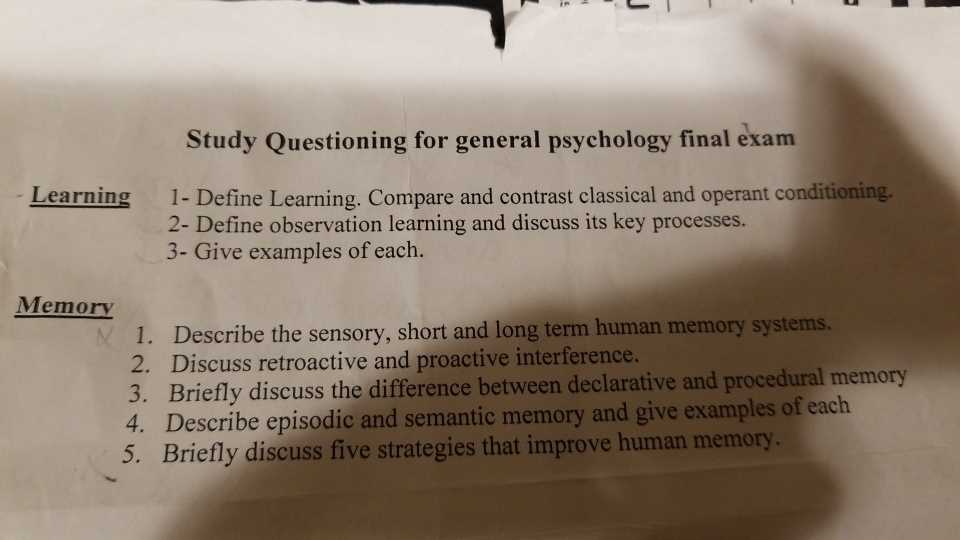
Preparing for assessments in the field of human behavior and mental processes can be a challenging yet rewarding journey. Success in these tests requires a blend of deep understanding, practical application, and strategic planning. From grasping foundational theories to applying critical thinking in complex scenarios, this section will guide you through the essential steps to excel.
Effective preparation is not just about memorizing facts; it’s about connecting concepts and forming a cohesive understanding of the subject matter. With the right study techniques, time management, and focus, you can approach these evaluations with confidence and skill. Whether you’re tackling theoretical questions or analyzing real-world case studies, mastering these skills will help you succeed in any related assessment.
Study Guide for Behavioral Science Assessments
To succeed in evaluations that focus on human behavior, mental processes, and their underlying mechanisms, it’s important to approach your preparation strategically. Understanding key concepts and their real-world applications will help you not only answer questions accurately but also think critically and analytically during the test.
Start by reviewing the core topics and focusing on areas where you feel least confident. Here are some key areas to cover:
- Theories of Learning – Study classical and operant conditioning, cognitive learning, and observational learning.
- Memory and Cognition – Understand how memory works, from encoding to retrieval, and explore different cognitive processes like problem-solving and decision-making.
- Research Methods – Familiarize yourself with experimental design, types of studies, data collection, and analysis techniques.
- Developmental Psychology – Focus on major stages of human growth, from infancy through adulthood.
- Personality Theories – Learn about Freud, Jung, and modern theories of personality development.
Additionally, practicing with sample questions and previous assessments can enhance your preparation:
- Review past test papers and identify commonly asked questions.
- Simulate exam conditions by timing yourself when answering practice questions.
- Analyze any mistakes you make and focus on improving those areas.
By focusing on these critical components and practicing effectively, you will build a comprehensive understanding and increase your confidence when faced with similar assessments.
Key Topics to Focus On
In order to excel in assessments related to human behavior and cognitive functions, it’s essential to concentrate on the most fundamental concepts. Focusing on key areas will not only help you grasp core ideas but also prepare you for a variety of question types that may appear during your evaluation. Prioritize these critical topics to ensure comprehensive preparation.
Theoretical Foundations
Understanding the major theories that underpin human behavior is crucial. Key areas to cover include:
- Learning Theories – Study classical and operant conditioning, along with cognitive models of learning.
- Developmental Stages – Focus on the changes people experience throughout life, from infancy to old age.
- Personality Theories – Review the major models that explain personality traits and behavior patterns, including psychodynamic and humanistic perspectives.
Practical Applications
In addition to theoretical knowledge, practical application is key to mastering this subject. Focus on these areas for applied understanding:
- Cognitive Processes – Explore memory, perception, problem-solving, and decision-making.
- Behavioral Assessment – Understand how behaviors are evaluated in different settings, including clinical and experimental environments.
- Social Influences – Study the impact of group dynamics, conformity, and social perception on individual behavior.
By mastering these core areas, you’ll be well-equipped to tackle questions related to both theory and real-world application in your evaluation.
Effective Study Strategies for Success
Achieving success in assessments focused on human behavior and mental processes requires more than just reading through textbooks. It’s about adopting the right strategies to ensure that you absorb, retain, and apply the knowledge effectively. With a well-organized approach, you can optimize your study sessions and perform at your best.
Time Management and Organization
One of the most crucial elements in preparing for any evaluation is managing your time efficiently. To make the most of your study sessions, follow these tips:
- Create a Study Schedule – Break down your study sessions into manageable blocks, setting specific goals for each period.
- Prioritize Difficult Topics – Focus on areas you find challenging, giving them extra time and attention.
- Regular Breaks – Avoid burnout by taking short, regular breaks to refresh your mind and improve focus.
Active Learning Techniques
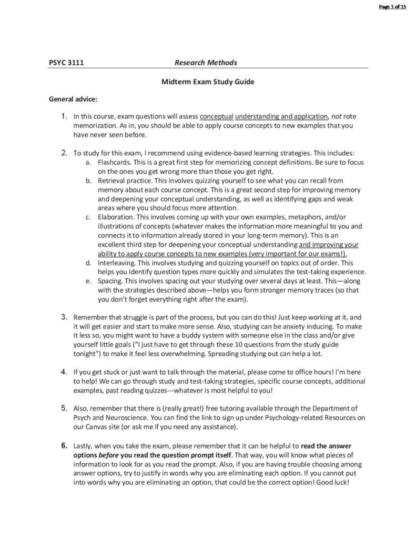
Engaging actively with the material will help you retain information more effectively. Here are some methods to consider:
- Self-Testing – Regularly quiz yourself on key concepts to reinforce your understanding and identify weak areas.
- Mind Mapping – Create diagrams that link related ideas, helping you visualize connections between concepts.
- Teach Someone Else – Explaining complex ideas to a peer can deepen your understanding and expose any gaps in your knowledge.
By following these strategies, you can approach your preparation with confidence, ensuring that you are well-prepared for any challenge that comes your way.
How to Manage Exam Stress
Stress is a common challenge during any assessment period, and it can significantly affect both your preparation and performance. Learning how to manage this stress is crucial for maintaining focus and ensuring optimal performance. By adopting effective stress-reduction techniques, you can enhance your ability to think clearly and stay calm throughout the process.
Here are some practical strategies to help manage anxiety and stress during the preparation period:
| Strategy | Description |
|---|---|
| Mindfulness and Relaxation | Practice deep breathing, meditation, or yoga to calm your mind and body before and during study sessions. |
| Exercise Regularly | Physical activity reduces stress hormones and promotes the release of endorphins, which improve mood and energy levels. |
| Sleep Well | Adequate sleep is essential for memory retention and mental clarity. Aim for 7-9 hours each night. |
| Stay Organized | Use study schedules and checklists to break tasks into manageable chunks, reducing the feeling of being overwhelmed. |
| Avoid Negative Thinking | Focus on positive affirmations and remind yourself of your progress and abilities rather than dwelling on potential failures. |
By incorporating these stress-management techniques into your routine, you will be able to maintain a calm and focused mindset throughout your preparation and during the actual evaluation.
Understanding Psychological Theories
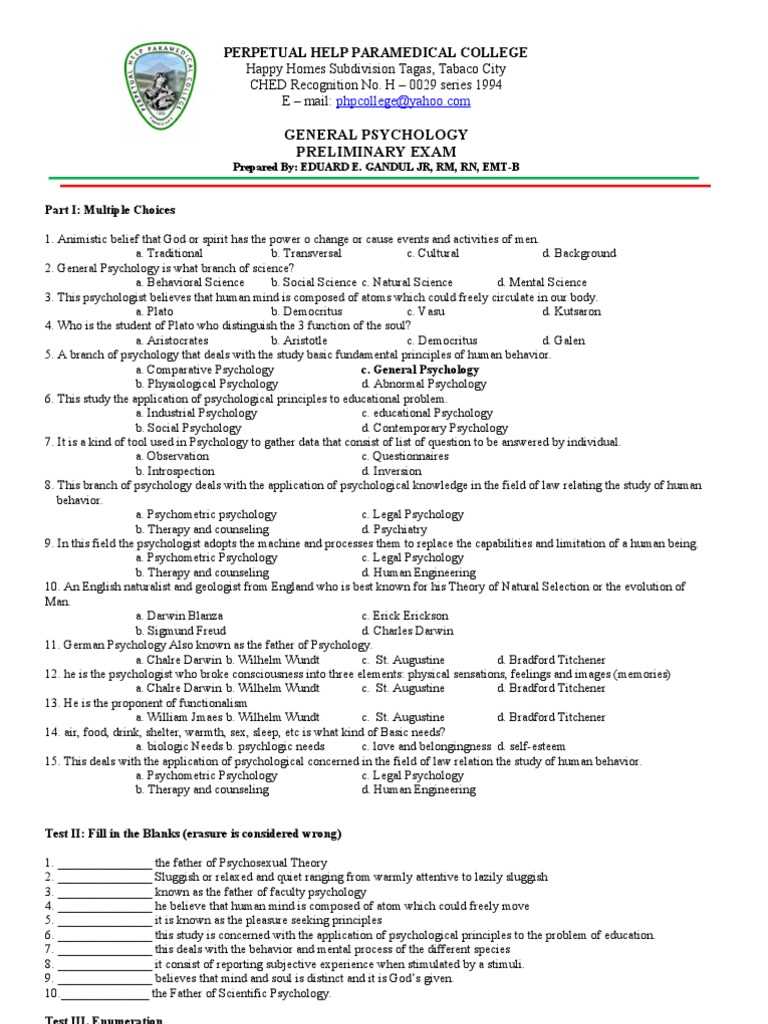
Grasping the foundational theories that explain human behavior is crucial for success in any assessment related to mental processes. These frameworks offer insight into how individuals think, feel, and act, and they provide the basis for understanding complex behaviors in various contexts. Familiarity with key theories will not only help you recognize patterns but also allow you to critically assess real-world situations.
Among the most influential ideas in this field are:
- Behaviorism – This theory emphasizes the role of environmental factors in shaping behavior, focusing on observable actions rather than internal mental states.
- Cognitive Theory – It explores how people perceive, process, and store information, influencing their decision-making and problem-solving abilities.
- Humanistic Approach – Focuses on the individual’s capacity for self-growth, emphasizing personal experience, free will, and the drive for self-actualization.
- Psychodynamic Theory – Based on Freud’s ideas, this approach explores how unconscious desires and early life experiences shape behavior and mental health.
By understanding these key theories, you can better analyze human actions and reactions in various settings, ultimately strengthening your ability to succeed in related assessments.
Common Mistakes in Behavioral Science Assessments
When preparing for any evaluation in the field of human behavior and mental processes, it’s important to be aware of common errors that can hinder your performance. Avoiding these mistakes will help you approach the test with greater confidence and clarity. Recognizing pitfalls beforehand will enable you to navigate the questions more effectively.
Common Errors to Avoid
Below are some frequent mistakes that students often make during the assessment process:
| Mistake | Explanation |
|---|---|
| Not Reading Instructions Carefully | Overlooking or misinterpreting the instructions can lead to mistakes. Always read through the guidelines before answering any questions. |
| Focusing Too Much on Memorization | While remembering facts is important, focusing too much on memorization can prevent you from understanding the concepts and applying them in different contexts. |
| Misinterpreting Question Phrasing | Many assessments include questions with tricky wording. Always take the time to break down the question and understand what is being asked before answering. |
| Neglecting Time Management | Spending too much time on one question can leave you rushing through others. Manage your time wisely to ensure you address all questions adequately. |
| Overcomplicating Answers | Providing overly complex answers when simple explanations will suffice can waste time and lead to confusion. Keep responses clear and to the point. |
Improvement Tips
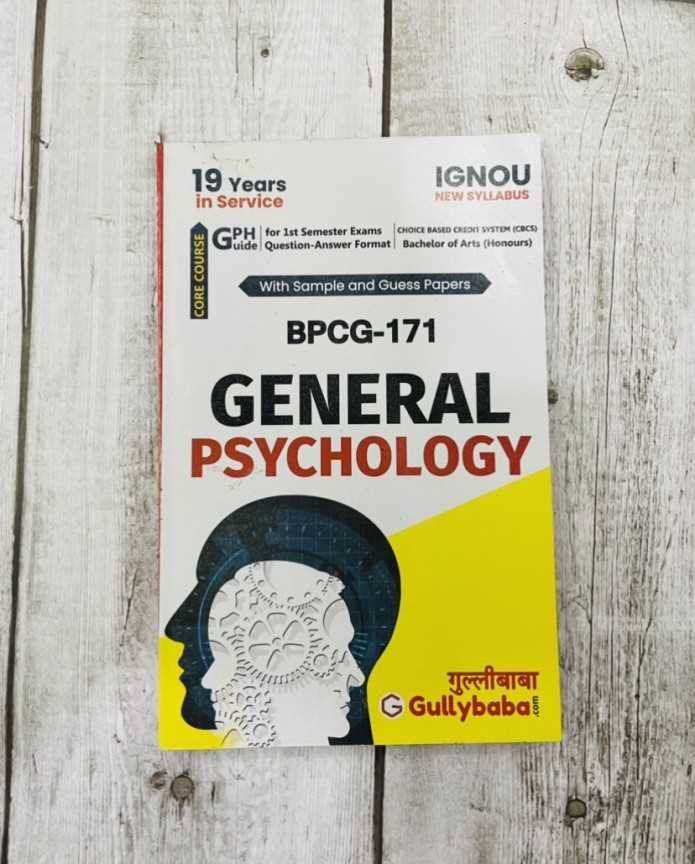
To improve your chances of success, focus on these strategies:
- Read Carefully: Always ensure you fully understand the question before answering.
- Practice Application: Rather than just memorizing facts, practice applying your knowledge to different scenarios.
- Manage Time Effectively: Set aside specific time blocks for each section of the test and stick to them.
By being mindful of these common mistakes and implementing corrective strategies, you can enhance your performance and achieve a better result in your evaluations.
Best Resources for Exam Preparation
Having access to the right study materials can significantly enhance your understanding and retention of key concepts. Utilizing high-quality resources helps you approach assessments with greater confidence, ensuring you’re well-prepared to apply your knowledge effectively. Whether you prefer reading, listening, or interactive learning, there are various tools available to support your preparation process.
Here are some of the best resources to consider for effective study:
- Textbooks and Academic Journals – Foundational textbooks provide in-depth explanations of core theories, while academic journals offer the latest research and case studies in the field.
- Online Courses and Tutorials – Websites like Coursera and edX offer structured courses taught by experts, making complex topics more accessible through video lectures and interactive exercises.
- Practice Tests – Taking practice tests helps you familiarize yourself with question formats and identify areas where further study is needed.
- Flashcards – Flashcards are a great tool for memorizing definitions, theories, and key terms quickly, reinforcing your knowledge for easy recall.
- Study Groups – Collaborating with peers allows you to discuss challenging concepts, share resources, and quiz each other, reinforcing your learning in a social setting.
By using a combination of these resources, you can tailor your study approach to suit your learning style and effectively prepare for any assessment.
Time Management Tips for Psych Exams
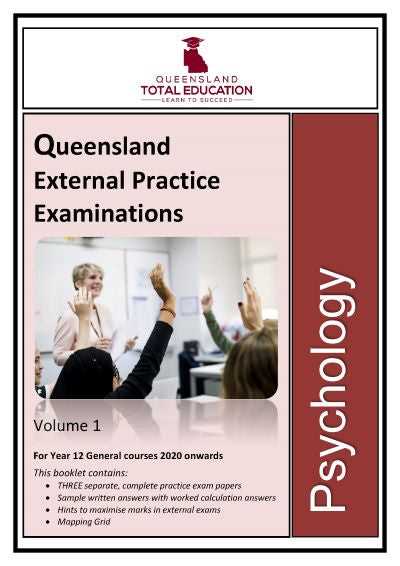
Efficient time management is essential for performing well in any assessment related to human behavior and mental processes. Proper planning ensures you have ample time to review key concepts, tackle difficult questions, and complete your answers without stress. Effective use of time during preparation and on the day of the test can make a significant difference in your performance.
Below are some useful time management strategies to help you stay on track during your study sessions and the actual test:
| Strategy | Explanation |
|---|---|
| Create a Study Schedule | Break down your study materials into smaller sections and allocate specific time slots for each topic, ensuring balanced coverage of all subjects. |
| Set Priorities | Focus on more challenging areas first, so you can spend extra time on them while you’re still fresh and focused. |
| Use Time Blocks | Study in focused intervals, such as 25-30 minute blocks, followed by short breaks. This helps maintain concentration without mental fatigue. |
| Avoid Procrastination | Start preparing early to avoid last-minute cramming. Set realistic daily goals to ensure steady progress without overwhelming yourself. |
| Practice Timed Mock Tests | Simulate exam conditions by practicing with timed mock tests. This will help you improve your ability to manage time effectively during the real assessment. |
By adopting these strategies, you can enhance your time management skills, reduce stress, and ensure you are well-prepared for the challenges of any assessment.
How to Approach Multiple Choice Questions
Multiple choice questions are a common part of assessments that test your understanding of core concepts and the ability to apply knowledge. These types of questions can often feel tricky, but with the right strategy, you can maximize your chances of selecting the correct answer. Knowing how to approach each question methodically is key to performing well.
Key Strategies for Success

Here are some effective strategies to help you approach multiple choice questions with confidence:
- Read Carefully: Always read the question thoroughly before looking at the options. Pay attention to details, such as words like “always,” “never,” or “sometimes,” as they can change the meaning of the question.
- Eliminate Obvious Wrong Answers: Narrow down your choices by eliminating clearly incorrect answers. This increases your chances of selecting the correct one even if you’re unsure.
- Look for Clues: Sometimes, other questions in the test can provide hints that help you answer previous ones. Cross-reference if needed.
- Don’t Overthink: If you’re stuck, trust your first instinct. Overanalyzing can lead to unnecessary confusion and mistakes.
When to Guess
If you’re unsure about a question and cannot eliminate enough options, make an educated guess. Avoid leaving questions unanswered, as even a random guess gives you a chance to score points.
By following these strategies, you can improve your ability to navigate multiple choice questions and increase your likelihood of success in any assessment.
Practicing with Past Exam Papers
One of the most effective ways to prepare for any assessment is by reviewing and practicing with past papers. This method allows you to familiarize yourself with the format of the questions, identify recurring themes, and gauge the level of difficulty you may encounter. Practicing with previous tests not only helps you understand the types of questions that might appear but also builds confidence and time management skills.
When working through past papers, it’s important to simulate real test conditions as closely as possible. Set a timer, avoid distractions, and try to complete the paper within the allotted time. This will give you a realistic sense of how to pace yourself during the actual assessment.
Benefits of Using Past Papers:
- Familiarity with Question Types: By working through multiple tests, you can get used to the style and wording of questions, making it easier to understand and answer them when it counts.
- Identify Knowledge Gaps: Past papers highlight areas you may need to review further. If you consistently struggle with certain topics, you can dedicate extra study time to those areas.
- Improved Time Management: Practicing under timed conditions helps you manage your time effectively during the actual assessment, ensuring that you don’t run out of time on difficult questions.
- Boosts Confidence: The more you practice, the more comfortable you will feel with the content and the format, reducing anxiety and improving overall performance.
By incorporating past papers into your study routine, you’ll gain valuable insights into the structure of the test and fine-tune your preparation strategy, leading to better results.
Memory Techniques for Psychology Exams
Effective memorization is essential when preparing for assessments that require recalling complex concepts and theories. Utilizing memory techniques can help reinforce information, improve retention, and make it easier to recall critical facts under pressure. These strategies can be tailored to suit your learning style and enhance your ability to retain and retrieve information efficiently.
Here are some proven memory techniques to improve your study sessions:
- Chunking: Break down large amounts of information into smaller, manageable chunks. For example, remember a long list by grouping related items together.
- Visualization: Create mental images associated with the information you’re trying to remember. Visualizing concepts as vivid pictures can make them easier to recall during the test.
- Mnemonics: Use acronyms, rhymes, or phrases to help memorize lists or sequences. Mnemonics provide a shortcut for remembering complex information.
- Spaced Repetition: Review material at increasing intervals over time. This technique strengthens memory retention by revisiting information regularly rather than cramming.
- Storytelling: Turn concepts or theories into a narrative. Creating a story around the material helps you remember details by associating them with a sequence of events.
- Association: Link new information to something you already know. Establishing connections between familiar and unfamiliar material makes it easier to retrieve information later.
Incorporating these memory techniques into your study routine can improve your recall, boost your confidence, and help you retain vital information for any upcoming assessments.
Examining Experimental Methods in Psychology
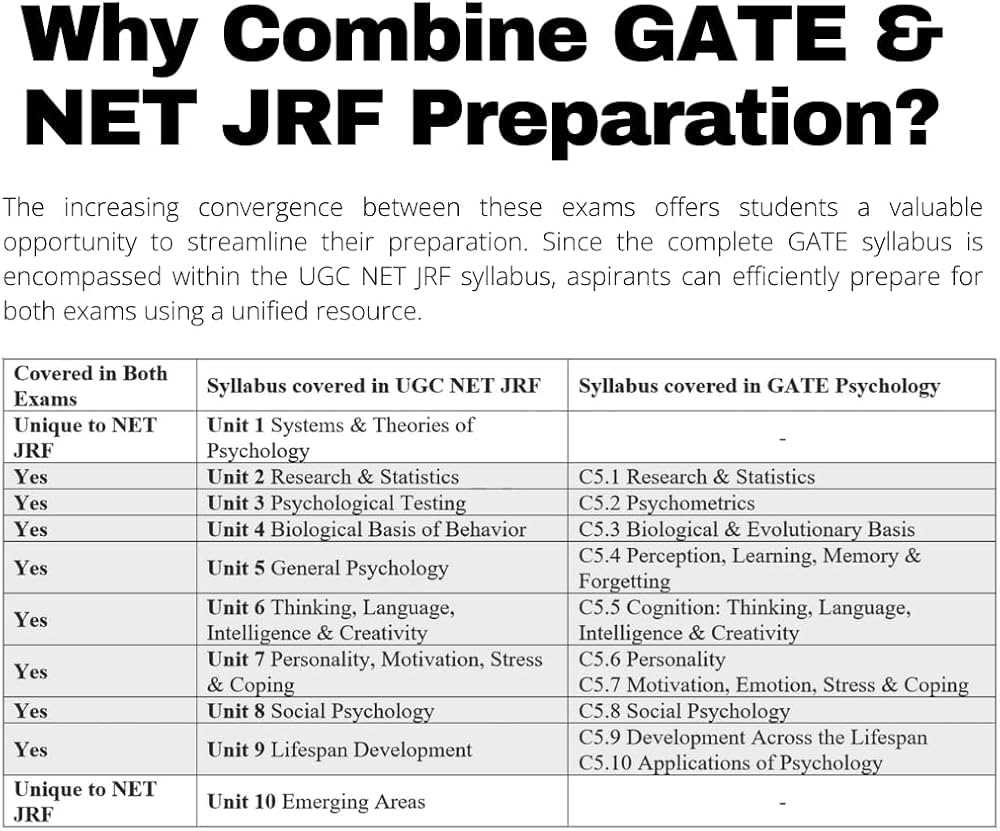
Understanding the scientific approaches used to study human behavior and mental processes is crucial for any assessment focused on this field. Experimental methods form the foundation of research, helping to establish cause-and-effect relationships through controlled environments and systematic observation. These methods are essential for testing hypotheses and gaining insights into how various factors influence human behavior.
Key Experimental Methods:
- Laboratory Experiments: Conducted in controlled environments where researchers manipulate variables to observe their effects on participants. This method allows for precise control over variables, ensuring reliable results.
- Field Experiments: These take place in real-world settings, offering more ecological validity. While researchers still manipulate variables, the environment is less controlled, providing a more natural setting for the study.
- Natural Experiments: Occur when researchers take advantage of naturally occurring events or changes, studying how these influences affect behavior without intervening or manipulating conditions.
- Quasi-Experiments: Similar to true experiments but without random assignment. Researchers still examine the relationship between variables, but participants are not randomly assigned to different groups.
Advantages and Challenges:
- Advantages: Experimental methods allow for rigorous testing of theories, control over variables, and replicable results, which contribute to the validity and reliability of findings.
- Challenges: While experimental methods are powerful, they can sometimes lack ecological validity, especially in laboratory settings, as the controlled environment may not fully replicate real-world conditions.
Mastering these experimental approaches is essential for understanding how researchers study behavior and for applying this knowledge to various topics in this field.
Key Psychologists Every Student Should Know
Throughout history, several influential figures have shaped the way we understand human behavior and mental processes. Their groundbreaking research and theories continue to inform the field and provide valuable insights for students. Familiarity with these key individuals is essential for anyone looking to deepen their understanding of how we think, feel, and act.
Here are some of the most notable psychologists whose contributions have had a lasting impact:
- Sigmund Freud: Known for developing the theory of psychoanalysis, Freud’s work focused on the unconscious mind, defense mechanisms, and the importance of early childhood experiences in shaping personality.
- Ivan Pavlov: Famous for his research on classical conditioning, Pavlov’s experiments with dogs helped reveal the process by which behaviors are learned through association.
- B.F. Skinner: A leading figure in behaviorism, Skinner developed the concept of operant conditioning, emphasizing how behavior is influenced by reinforcement and punishment.
- Jean Piaget: Piaget’s theory of cognitive development explored how children develop logical thinking and understanding in stages, significantly influencing education and developmental psychology.
- Abraham Maslow: Maslow is best known for his hierarchy of needs, which outlines the stages of human motivation, from basic survival needs to self-actualization.
- Carl Rogers: A key figure in humanistic psychology, Rogers emphasized the importance of self-concept, unconditional positive regard, and the therapeutic relationship in fostering personal growth.
- John B. Watson: Watson is regarded as the father of behaviorism, advocating that psychology should focus on observable behavior rather than internal mental states.
- Albert Bandura: Known for his social learning theory, Bandura’s work highlighted the importance of observational learning, imitation, and modeling in behavior development.
These psychologists have laid the groundwork for modern theories and continue to influence the study of human behavior in various domains. Understanding their ideas and research is vital for any student seeking a comprehensive understanding of this field.
How to Write Psychology Exam Essays
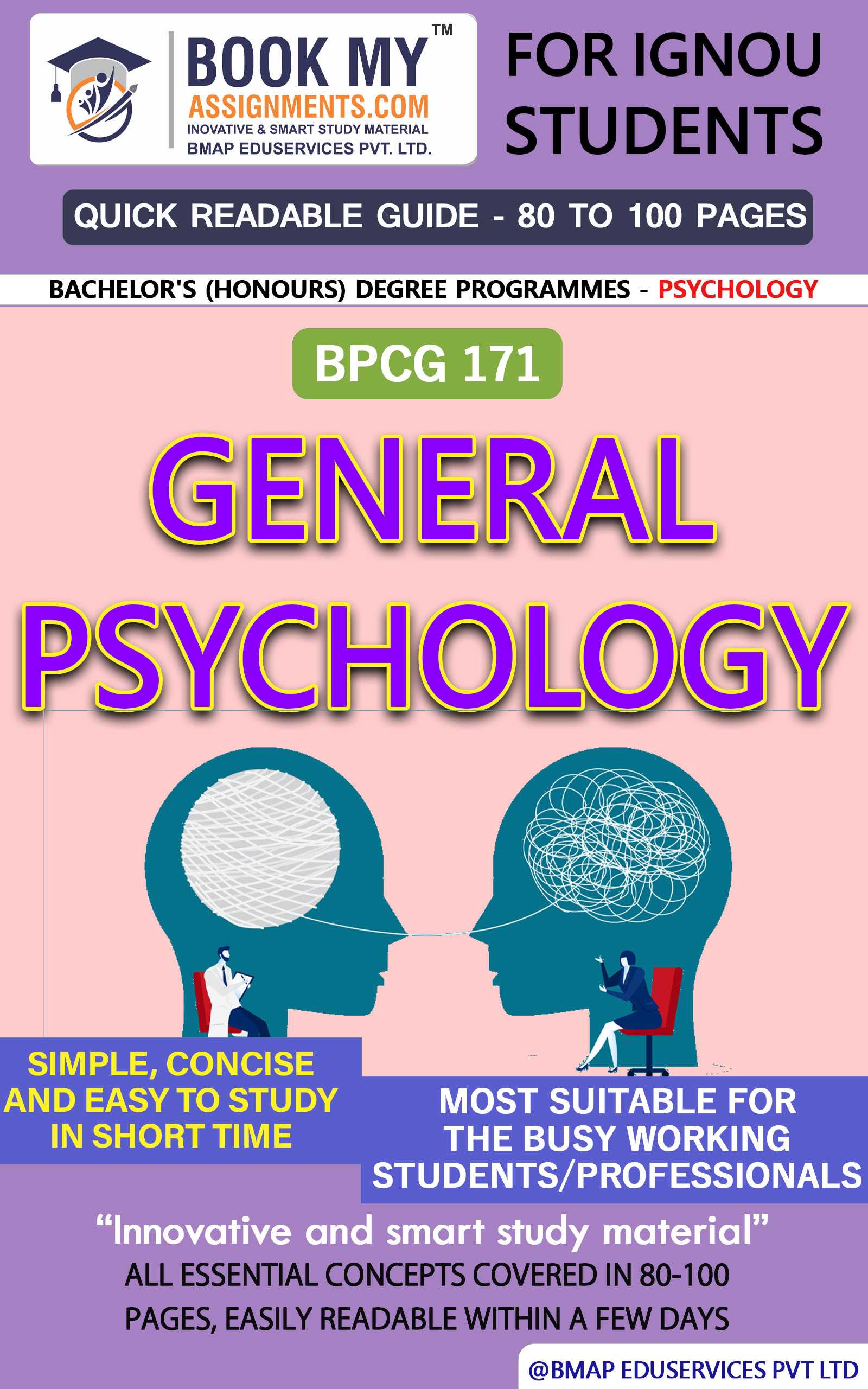
Writing essays for this type of assessment requires a clear, structured approach to demonstrate your understanding and analytical skills. The goal is to present your ideas logically, support your arguments with evidence, and engage critically with the material. Whether you are asked to analyze theories, evaluate research, or discuss key concepts, following a few essential strategies can help ensure your response is well-organized and impactful.
1. Understand the Question: Before starting, carefully read the essay prompt. Ensure you fully understand what is being asked–whether it’s to describe, analyze, compare, or critique. Clarifying the question in your mind will help guide your response and prevent unnecessary digressions.
2. Plan Your Answer: Structure your essay before writing it. Break it down into an introduction, body paragraphs, and conclusion. Think about the main points you need to cover and organize them in a logical order. This will help maintain focus and coherence throughout your essay.
3. Write a Clear Introduction: Begin by introducing the topic and stating the key arguments or theories you will discuss. Make sure your introduction provides context and outlines the scope of your essay, highlighting the main points that will be covered.
4. Develop Well-Structured Body Paragraphs: Each paragraph should focus on a single point or idea. Start each paragraph with a clear topic sentence, followed by evidence and examples to support your argument. Use research findings, real-world examples, or theoretical frameworks to back up your points.
5. Critically Analyze and Evaluate: Don’t just describe theories or studies–engage with them. Discuss strengths and weaknesses, potential limitations, and how different perspectives contribute to the understanding of the topic. Demonstrating critical thinking will help elevate the quality of your essay.
6. Conclude Effectively: The conclusion should summarize your main points without introducing new information. Reinforce your argument and provide a final assessment based on the evidence you presented. A strong conclusion ties everything together and leaves a lasting impression.
7. Edit and Proofread: After writing, take the time to review your essay. Check for clarity, coherence, grammar, and spelling errors. Ensure your argument flows logically and that each paragraph serves a clear purpose in supporting your thesis.
By following these guidelines, you can approach essay questions with confidence and produce a well-structured, thoughtful response that demonstrates your depth of understanding.
Reviewing Key Psychological Studies
To excel in this field, it is crucial to understand and analyze landmark studies that have shaped the discipline. These studies not only provide foundational knowledge but also illustrate how research has advanced our understanding of human behavior and cognition. By reviewing key experiments and their findings, you can gain insights into the methods used by researchers and the conclusions they have drawn.
Understanding Classic Research
One of the first steps in reviewing significant studies is understanding their core findings and contributions to the field. Classic research, such as the famous experiments on conditioning or cognitive development, offers critical insights into fundamental theories. It is important to focus on the key variables, the experimental design, and the implications of the results. By familiarizing yourself with these studies, you will be better equipped to understand how modern research builds on previous work.
Critical Evaluation of Studies
Equally important is the ability to critically evaluate the methods and conclusions of psychological studies. When reviewing research, ask questions such as: What were the strengths and weaknesses of the experimental design? Were the results reliable and valid? How did the findings contribute to the development of key theories? By engaging critically with the studies, you not only deepen your understanding but also sharpen your analytical skills, which are essential when preparing for any assessment.
By regularly reviewing key psychological studies and considering their contributions, limitations, and implications, you will develop a strong foundation in the field and be better prepared for both theoretical and practical questions in your assessments.
Staying Motivated During Exam Preparation
Staying focused and motivated during the preparation phase can often be challenging, especially when the workload feels overwhelming. However, maintaining motivation is key to effectively managing your time and ensuring you are fully prepared for any assessment. Setting clear goals, maintaining a balanced routine, and finding sources of inspiration are essential to staying on track and keeping your energy up throughout the study period.
Setting Achievable Goals
One of the best ways to stay motivated is by breaking down your study sessions into smaller, achievable goals. Instead of focusing solely on the end result, set milestones along the way that feel attainable. Whether it’s mastering a specific topic or completing a set number of practice questions each day, small victories can boost your confidence and maintain your drive. Regularly achieving these goals keeps your momentum going and reduces feelings of being overwhelmed.
Maintaining a Balanced Routine
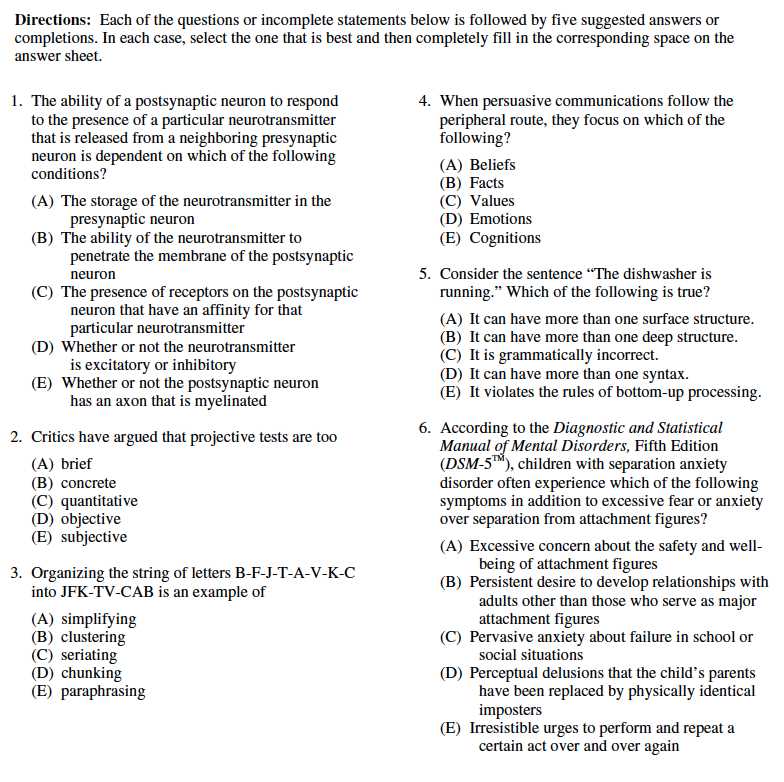
Balance is key when it comes to sustaining motivation over an extended period. While it’s important to commit time to studying, it’s equally important to take breaks, rest, and engage in activities that help you recharge. Whether it’s exercise, spending time with friends, or indulging in hobbies, maintaining a routine that includes both study time and personal time will keep you energized and focused. Remember, burnout can hinder your progress, so make sure to rest when needed to stay motivated in the long run.
By setting clear goals and maintaining a balanced approach to your schedule, you can stay motivated and maximize your productivity, leading to a more successful and less stressful preparation experience.
What to Expect on Your Psychology Exam
As the day of your assessment approaches, it’s natural to feel both nervous and curious about what lies ahead. Understanding the typical structure and content of the test can help ease anxiety and allow for more focused preparation. While the format may vary depending on the institution, most assessments share common elements, ranging from multiple-choice questions to essay-style responses. Knowing what to expect can give you the confidence to approach the test with a strategic mindset.
Question Formats You Might Encounter
One of the most common question formats in such assessments includes multiple-choice questions. These are designed to test your knowledge on a wide range of topics, often requiring you to recall specific details, theories, or concepts. In addition to multiple-choice questions, you may encounter short-answer questions that assess your ability to provide concise yet accurate responses to key ideas.
Essay and Application Questions
Many assessments will also include essay questions that test your ability to apply theoretical knowledge to real-world scenarios. These questions require you to demonstrate a deeper understanding of the material, often asking you to evaluate, analyze, or compare different concepts. It’s essential to organize your thoughts clearly, using relevant examples to support your arguments. Preparing for this type of question involves practicing critical thinking and improving your ability to articulate ideas coherently.
Overall, by familiarizing yourself with the structure and types of questions typically found in such assessments, you can approach the test day with a sense of readiness and confidence, knowing what areas to focus on during your final preparations.